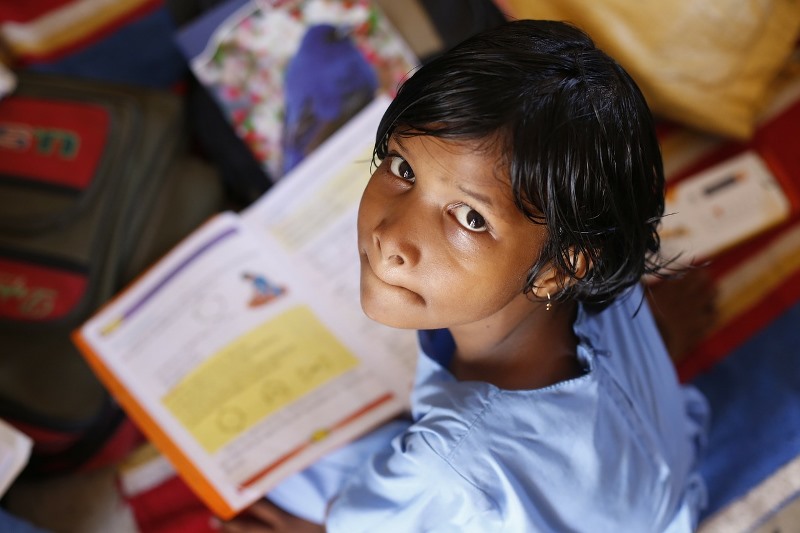40Ever since the first nationwide lockdown was declared in India (March 2020) due to COVID, the early education institutes (Anganwadis / Pre-schools / Playschools) were the first to get shut down, and the last to be reopened. This makes us contemplate upon how unimportant we consider early education to be in the country.
One of the significant highlights during this lockdown period was the release of the New Education Policy (NEP) 2020. Nevertheless, it is crucial to recall that this policy document was drafted in the pre-COVID situation and presented in an entirely distinct scenario. The overarching vision of NEP 2020 comprises:
- providing a high-quality and equitable education to all
- developing respect for Fundamental Duties and Constitutional values
- inculcating skills and values to be a global citizen.
The recognition and inclusion of ECE in NEP 2020 have provided us with an opportunity to re-think how we envision ECE in the future.
Now, with the NEP 2020 and new challenges due to the pandemic, in my view, the top 3 immediate actions on a nation and/or state level to transform ECE are:
- Budget allocations: Budgets are a tool for government accountability, transparency, monitoring, and planning. The government (central or state) budget for any sector establishes the foundation for the quality implementation of policies and schemes. Understanding budgets and keeping track of budget allocations enables us to get a sense of the government priorities.
In the Union Budget (UB) 2022-23, the share of the budget for children (BfC) is only 2.35% of the total budget, which is also the lowest in the last 11 years. Within BfC, the child education sector received only a 1.77% share, which is an increase of 0.03% of what was allocated in the UB 2021-22, but as mentioned before, the overall BfC witnessed a decline. This is the overall budget allocated in the education sector for all children, and we do not disaggregate details of what percent the ECE sector received. However, these data make it comprehendible that the child education sector remains underfunded. During UB 2012-13, the BfC was 4.76% of the total budget. Therefore, to transform ECE in India over the following years, it is critical to look back and allocate an appropriate BfC, keeping in perspective the challenges and learning gaps created due to the lockdown period. If the government allocated almost 5% of the total budget 11 years back for children, it could reanalyze it to bridge the learning gaps and the quality implementation of NEP 2020. Furthermore, the same can be considered by the state-level governments or vice-versa.
- Developing a National Curricular and Pedagogical Framework for Early Childhood Care and Education (NCPFECCE): The NEP 2020 has mentioned that NCERT will develop an NCPFECCE for children up to the age of 8 in two parts. This framework will further strengthen the emphasis on the importance of ECE in India. The policy emphasizes that the curriculum framework will incorporate guidelines for developmentally and contextually appropriate activities for children.
Over the last two years, a considerable dependence on technology in the education field has gained a never-before focus. The extensive use of technology has also been mentioned as one of the fundamental principles in NEP 2020. The use of technology in everyday teaching-learning should be brought to create an inclusive environment for children, and the government must ensure that it does not exclude the already marginalised children in the country. The policy has determined that technology in education will remove language barriers, expand learning access to children with disabilities, etc. Hence, the curriculum framework should include guidelines to align with these specifics of the policy vision.
On the other hand, The Ministry of Education, Government of India, developed one such guideline during the lockdown period ‘Guidelines for parent participation in home-based learning during school closure and beyond.’The document collates numerous simple recommendations for parents to support and facilitate children in Home-based learning. These guidelines are relevant and beneficial for diverse stakeholders, including caregivers (parents or guardians), school heads, teachers, teacher educators, and children. Separate sections have been included on – using art as therapy, assessments, parent-school partnership, and supporting parents with low literacy levels and children with special needs. It should be ensured that these guidelines reach the appropriate stakeholders. The foundational stage of schooling activities includes – naming and classifying everyday things found in our homes, hunting different shapes in the immediate surroundings, etc., to list a few.
- Capacity Building of Teacher: The key stakeholders at different policy levels keep interchanging. One of the critical stakeholders to fulfil the policy vision is a teacher at the implementation level. Besides, the NEP recognises teachers as the heart of the learning process and has emphasised various skills needed for a high-quality early educator. Thus, it is essential to invest in providing; continuous quality professional development and inclusive & equitable work conditions for teachers, which they will reciprocate for the children.
There is an urgent need to deliver training to make early educators technologically sound. The challenges of the digital mode of learning were not restricted to children and their families during the lockdown. The study by OXFAM India found that 84% of government school teachers struggled with delivery through digital mediums. Additionally, Azim Premji University’s Myths of Online Education study revealed that more than 80% of the teachers reported difficulties connecting with children emotionally and assessing their learning meaningfully while teaching online.
The challenges faced by early educators during the lockdown have made us question and re-evaluate the skills we formerly had. Educators’ relationship before and after the pandemic with students, families, and professional peers has changed over time.
The capacity building of early educators is even more vital because of the stereotypical views attached to their work. In our society, it is still believed that anyone can teach young children, and there is no need for any professional training to work with pre-schoolers. Due to this, the early educator’s profession remains based on the sexual division of labour (‘feminization of teaching’). Thus, it is essential to counter these gendered stereotypes and transform ECE nationally by focusing on preparing a high-quality ECCE cadre.
Keeping in view both NEP 2020 and the contemporary challenges, some of the top knowledge, skills, and mindsets that are must-have for early educators now and in the future are:
- Technical Skillset: A sound understanding of child development, importance of ECE, and developing & transacting play-cum-inquiry-based curriculum and lesson plans. Efficient training of ECE technical skills is vital because, like any other profession, early educators need specialised skills to work with children and break the stereotypical mindset that they are only responsible for childcare with a few hours of play activities. Technical skillset will help educators identify the learning gaps (in cognitive development, physical & motor development, socio-emotional-ethical development, strong communication skills development, early and foundational language, literacy, and numeracy) for the holistic development of all children.
- Soft Skillset – Along with the technical skills, some of the soft integral skills an early educator needs are Communication Skills, Creativity, and Building empathetic relationships. Early educators are the ones who help children understand and express themselves after their parents. Furthermore, they have to communicate actively and engage with children and families to share the progress and needs of the child efficiently. So, it is also essential to build an empathetic relationship with both.
Moreover, to work with young children, one needs to be as creative as possible because we know how imaginative children are during their early years, and the educators need to be flexible and adaptive accordingly.
- Life Skillset – The period of lockdown and the sudden shift of online teaching-learning mode from face-to-face mode has highlighted the need to focus on mental health issues from the early years onwards. It is often assumed that children do not have these issues. Nevertheless, the much-needed conversations on mental health have started to take place from early childhood years. Early educators are now required to have a sound understanding of Socio-Emotional Learning to be resilient to reciprocate the same to children.
- Mindsets – Ealy Educators need to imbibe; an equitable and critical mindset approach. These mindsets will help them build an inclusive, equitable, and safe learning environment for children in a post-COVID classroom. An early educator must understand that with what mindset they communicate and build relationships with children, they assimilate those values and learn from them. Special emphasis on mindsets, as mentioned earlier, has been given in NEP 2020 as well, that is – a) recognising, identifying, and fostering the unique capabilities of each student, b) respect for diversity, c) full equity, and inclusion, etc.
- Technologically sound – With the focus on extensive use of technology in the teaching-learning process from early years to providing ECCE training through digital modes (DTH channels and smartphones), the government needs to add the same in the pre- and in-service teacher training programmes to build a technologically sound cadre of educators given the circumstances.
Swati Shukla is Project Development Associate(Parent Engagement) at Key Education Foundation. She has been working in the Education and Development sector for several years.










